

Story
첨단바이오는
한국의 미래 짊어질 핵심 산업
Advanced Bio: The Key Industry Shaping Korea's Future
한국연구재단 국책연구본부 차세대바이오단장 남진우 교수(생명과학과)
Professor Jin-Wu Nam (Department of Life Sciences),
Next Generation Bio Division Head of the National Strategic R&D Programs at National Research Foundation of Korea
- 글 김현지
- 사진 이현구
- Writing Kim Hyun-ji
- Photograph Lee Hyeon-gu
Scroll Down
In the wake of the COVID-19 pandemic, the world has embarked on a race for supremacy in the bio sector. Nations are now vying for dominance by investing heavily in research on “Disease X,” expanding bio manufacturing supply chains, and bolstering their overall biotech capabilities. As a result, the advanced bio field has become a fiercely contested battleground for securing future national competitiveness. We sat down with Professor Jin-Wu Nam, who currently serves as the Director of the Next Generation Bio Division at the National Research Foundation, to explore the complexities of the advanced bio landscape and its implications for Korea's future.
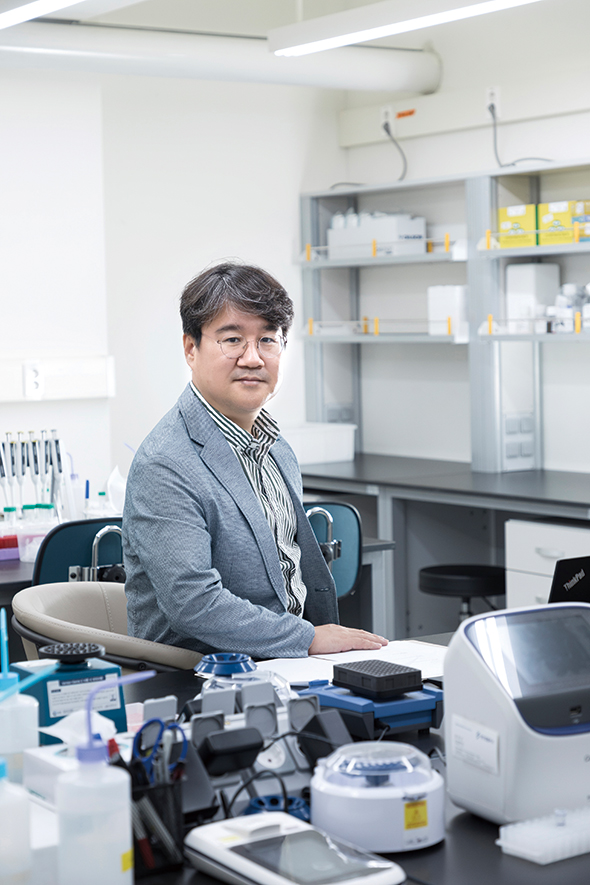
첨단바이오의 핵심 전략은 디지털바이오
우리 사회 각 영역이 발전을 거듭하는 동안 바이오 분야는 건강, 식량, 에너지 분야에 큰 변화를 가져왔다. 반면, 바이오 연구실 환경은 상대적으로 더디게 변화한 면이 있다. △가설-실험설계-결과해석-토론으로 이어지는 연구 프로세스 △플라스크, 슬라이드글라스, 플라스틱 튜브, 팁 등 수동적인 실험 환경에서 수행하는 반복 실험 △연구활동 및 결과를 연구자와 연구실에 개별적으로 관리하는 폐쇄성까지. 비효율적이고 노동집약적인 실험 환경은 변함이 없었다. 하지만 디지털 전환과 인공지능(AI) 기술을 바탕으로 바이오 연구는 기존과 완전히 다른, 대전환을 맞게 됐다.
“첨단바이오는 기존 연구의 환경과 방법, 프로세스를 모두 변화시켰습니다. 그 핵심은 생명과학에 머신러닝, 빅데이터 분석, 컴퓨터 시뮬레이션 등 디지털, AI 기술을 결합한 바이오 디지털 전환에 있습니다. 디지털바이오 전략으로 고품질의, 표준화되고 정밀화된, 방대한 분량의 바이오데이터 생산이 이뤄지며 기존 연구의 제약과 한계를 뛰어넘게 됐죠.”
남진우 교수는 첨단바이오를 통해 ‘증거 기반 과학’에서 ‘데이터 기반 과학’으로 무게 중심이 옮겨지고 있다고 설명했다. 데이터 기반 과학은 과학적 가설의 설정과 검증을 데이터 분석과 모델링에 기반하는 연구 방법론이다. 디지털바이오는 △정밀화 △표준화 △모듈화 △자동화 △스마트화 △데이터화의 6대 요소를 통해 바이오 연구의 시간과 비용, 오류를 줄이고 효율성을 높인다. 디지털 시스템과 AI 활용으로 노동집약적 환경을 자동화된 연구 환경으로 변화시킨다. 디지털바이오 전략은 분자생물학, 유전-진화학, 미생물학, 환경생태, 생명정보학, 유전체학, 오믹스학, 신약/제약, 합성생물학, 헬스케어, 감염병 등 기초 연구에서 임상까지 다양한 바이오 영역에 적용된다.
“인공지능반도체와 양자, 첨단바이오 분야는 글로벌 시장 판도를 바꿀 3대 게임체인저로 꼽히고 있습니다. 첨단바이오는 포스트 코로나 시대를 맞으며 더욱 중요해졌죠. 국가의 미래를 좌우할 핵심 전략기술로 떠올랐습니다. 디지털바이오 전략을 바탕으로 한 첨단바이오는 정밀 조기진단, 정밀의학, 맞춤형 표적치료제 개발뿐 아니라 노화, 식량, 인구 절벽, 기후변화 등의 주요 바이오난제 해결로 바이오의 새 지평을 열 것으로 기대합니다.”
남진우 교수는 전 세계에서 첨단바이오 연구개발 확대와 바이오경제, 바이오제조 육성을 위한 다양한 투자, 지원이 이뤄지고 있다고 전했다. 바이오소재, 합성생물학, 바이오파운드리 등을 기반으로 한 첨단바이오 기술 경쟁은 점점 더 치열해질 전망이다.
The Core Strategy of Advanced Biotechnology Lies in Digital Biotech
While various sectors of our society have seen continuous progress, the field of biotechnology has brought about significant changes in health, food, and energy. However, the environment in biotech laboratories has evolved relatively slowly. The traditional research process—formulating hypotheses, designing experiments, interpreting results, and discussing findings—has remained largely unchanged. This process still relies on repetitive, manual experiments using tools like flasks, slide glass, plastic tubes, and tips. Research remains isolated, with results managed independently by individual researchers and laboratories. Nevertheless, with the advent of digital transformation and artificial intelligence (AI) technologies, biotech research is now on the brink of a major paradigm shift, poised to become completely different from its traditional form.
“Advanced biotechnology has revolutionized the environment, methods, and processes of traditional research. At its core lies the bio digital transformation, which combines life sciences with digital and AI technologies such as machine learning, big data analysis, and computer simulations. This digital bio strategy enables the production of vast amounts of high-quality, standardized, and precise bio data, breaking through the constraints and limitations of conventional research.”
Professor Nam explained that through advanced biotechnology, the focus is shifting from ”evidence-based science” to “data-driven science.” Data-driven science is a research methodology that bases the formulation and verification of scientific hypotheses on data analysis and modeling. Digital biotechnology improves the efficiency of research by reducing time, costs, and errors through six core principles: precision, standardization, modularization, automation, smart integration, and datadriven approaches. By harnessing the power of digital systems and AI, it transforms labor-intensive environments into automated research processes. This digital biotech strategy is applied across a wide range of domains, from fundamental research to clinical applications, encompassing molecular biology, genetics, evolutionary chemistry, microbiology, environmental ecology, bioinformatics, genomics, omics, drug development, synthetic biology, healthcare, and infectious disease management.
Artificial intelligence semiconductors, quantum technology, and advanced biotechnology are seen as three key game-changers that are set to transform the global market landscape. Among these, advanced biotechnology has gained heightened importance in the post-COVID era, emerging as a critical strategic technology with the potential to shape a nation's future. Leveraging digital biotech strategies, advanced biotech is expected to pave the way for groundbreaking developments. These include not only advancements in precision early diagnosis, precision medicine, and personalized targeted therapies, but also tackling major global challenges such as aging, food security, population decline, and climate change.
Professor Nam highlighted that significant investments and support are being made globally to advance R&D in biotechnology and strengthen the bioeconomy and biomanufacturing sectors. Competition in cutting-edge biotechnology, particularly in areas like biomaterials, synthetic biology, and bioprocessing, is expected to grow more intense. As countries vie for leadership in this field, we are likely to witness a wave of groundbreaking innovations and heightened rivalry in the global biotech landscape.
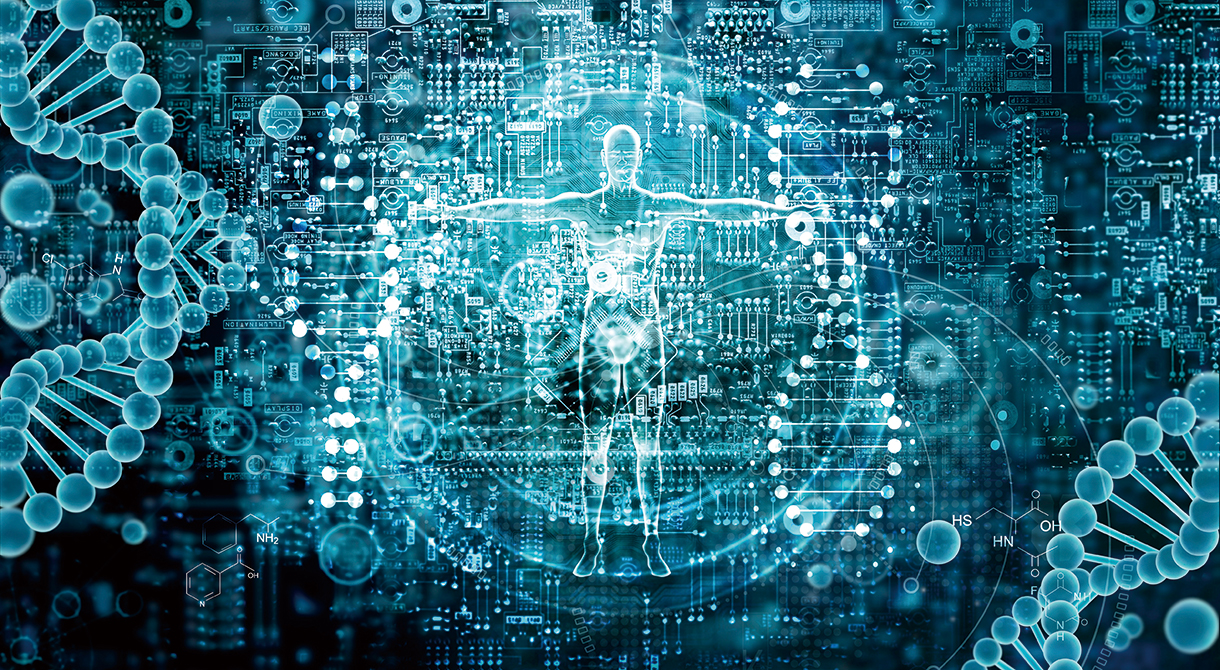
바이오 선도국 목표하는 ‘첨단바이오 이니셔티브’
첨단바이오는 경제뿐 아니라 안보 면에서도 중요한 위치를 차지한다. 실례로 바이오 안보를 위해 미국을 중심으로 중국의 과학기술 견제 움직임이 확산했다. 미국 의회에서는 바이오데이터, 생체정보 보안을 위한 ‘생물보안법(Bio Secure Act)’ 제정 논의가 이뤄지고 있다. 이러한 이슈로 중국의 주요 유전체 업체 등이 미국에서 문을 닫았고, 반대급부로 삼성바이오로직스, 셀트리온 같은 우리나라 바이오시밀러업체의 순익이 증가하기도 했다.
“미국, 영국, 유럽, 일본, 중국 등이 앞다퉈 전략을 내놓으며, 첨단바이오 성장을 위해 발 빠르게 나아가고 있습니다. 이에 따라 우리 정부도 지난 4월 ‘첨단바이오 이니셔티브’를 발표했습니다. 미래 핵심 원천기술 확보가 가능한 첨단바이오 분야의 비전을 제시하며 오는 2035년까지 바이오 선도국으로 성장한다는 목표를 세웠죠.”
우리나라는 첨단바이오를 크게 ‘합성생물학’과 ‘유전자세포치료’, ‘디지털헬스케어 데이터 수집활용’, ‘감염병’의 4개 세부 전략기술로 분류하고 해당 분야의 기술 관리, 육성 계획을 밝혔다. 남진우 교수는 바이오제조 강국 달성을 위해서는 첨단바이오 이니셔티브 로드맵을 차근차근 준비, 기획, 실행해야 한다고 강조했다.
“AI 기반의 스마트 첨단바이오 실험실 구축을 통해 실험실에서 일어나는 혁신적인 연구개발이 산업으로 이어지도록 기반을 다져야 합니다. 중요 바이오소재와 바이오데이터를 잘 수집 · 관리하고, 연구개발의 효율성도 높여야 해요. 또 우리나라만의 독창적인 연구 아이템, 새로운 바이오 영역 창출을 위한 노력이 필요합니다.”
우리 정부는 그동안에도 한국연구재단 활동 등을 통해 관련 분야 성장을 지원해 왔다. 한국연구재단은 과학기술정보통신부와 교육부에서 위탁받은 연구, 교육, 산학협력 업무를 총괄하는 기관이다. 남진우 교수는 한국연구재단 국책연구본부 전문위원으로 활동하며 2022년 460억 원 규모의 ‘데이터 기반 디지털바이오 선도사업’을 주도적으로 기획했다. 디지털바이오 연구 최초의 정부 사업 시행을 도운 공로로 2022년 12월에 ‘과학기술정보통신부 장관 포상’을 받기도 했다. 2023년 12월부터는 한국연구재단 국책연구본부 차세대바이오단장으로 선임돼 첨단바이오 분야의 기획, 관리, 평가, 성과 확산, 정책 등의 업무를 맡고 있다.
“차세대바이오단은 한국연구재단 국책연구본부 내 3개 바이오기술단(신약단, 뇌첨단의공학단, 차세대바이오단) 중 하나입니다. 첨단바이오, 차세대바이오, 디지털바이오, 생명연구자원, 합성생물학 분야를 총괄하죠. 국가통합 바이오 빅데이터 사업, 바이오파운드리 인프라 및 활용기반 구축사업, 합성생물학 핵심기술 개발사업, 보스턴-코리아 공동연구 지원사업, 다부처 국가생명연구 선진화 사업 등 매년 약 2000억 원이 넘는 바이오 국책사업을 기획, 관리하고 있습니다.”
Korea's Advanced Bio Initiative: Striving to Become a Global Leader in Advanced Biotechnology
Advanced bio holds a significant position not only in the economy but also in terms of security. For example, in the name of biosecurity, there has been a spread of efforts to counter China's advancements in science and technology centered around the United States. The US Congress is currently discussing the enactment of the “Bio Secure Act” which focuses on protecting biological information. In light of these developments, several major Chinese genetic companies have closed their operations in the U.S., while South Korea's biosimilar companies, such as Samsung Biologics and Celltrion, have seen increased profits.
“Countries like the United States, United Kingdom, Europe, Japan, and China are racing to unveil strategies and swiftly advancing to foster growth in advanced bio. In response, the Korean government announced the “Advanced Biotechnology Initiative” in April. This initiative presents a vision to harness advanced biotech as a driver of core future technologies and sets the ambitious goal of positioning Korea as a global leader in biotechnology by 2035.”
Korea has identified four key strategic areas within advanced biotechnology: synthetic biology, gene and cell therapy, digital healthcare data collection and utilization, and infectious diseases. The government has laid out plans to develop and manage technologies in these critical fields. Professor Nam stressed that for Korea to become a leader in bio-manufacturing, it is essential to carefully prepare, plan, and execute the roadmap for the advanced biotech initiative step by step.
“We need to lay the groundwork for innovative research and development in laboratories to translate into industrial applications by establishing AI-powered smart advanced bio facilities. It's crucial to effectively collect and manage essential biomaterials and biodata and boost R&D efficiency. Moreover, it's important to pursue unique research topics and create new biotechnology domains that are distinct to Korea.”
The Korean government has been supporting the growth of related fields through organizations like the National Research Foundation (NRF). The NRF is responsible for overseeing research, education, and industry-academia collaboration projects entrusted by the Ministry of Science and ICT and the Ministry of Education. In 2022, Professor Nam, as a specialist committee member of the NRF's National Strategic R&D Programs, spearheaded the planning of the KRW 46 billion “Data-driven Digital Bio-Leading Project,” in 2022. For his pivotal role in launching the government's first digital bio research initiative, he was awarded the Ministerial Award from the Ministry of Science and ICT in December 2022. Since December 2023, he has taken on the role of Head of the Next Generation Bio Division at the NRF's National Strategic R&D Programs, overseeing the planning, management, evaluation, dissemination of outcomes, and policy-making in the advanced biotechnology sector.
“The Next Generation Bio Division is one of three biotechnology divisions within the NRF's National Strategic R&D Programs, alongside the New Drug Division and Cuttingedge Engineering Division. It is responsible for overseeing areas such as advanced bio, digital bio, life research resources, and synthetic biology. The division manages national biotechnology projects worth over KRW 200 billion annually, including the National Project of Bio Big Data, Biofoundry Infrastructure Establishment Project, the Synthetic Biology Core Technology Development Project, the Boston-Korea Joint Research Support Project, and the Interdepartmental National Life Research Advancement Project.”
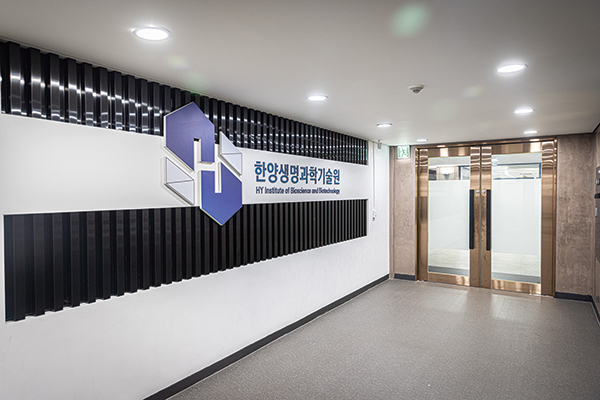
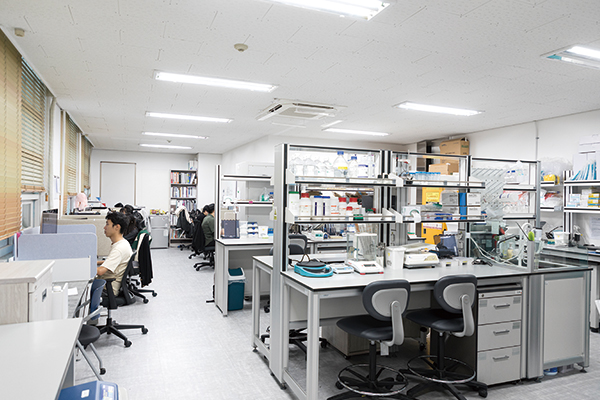
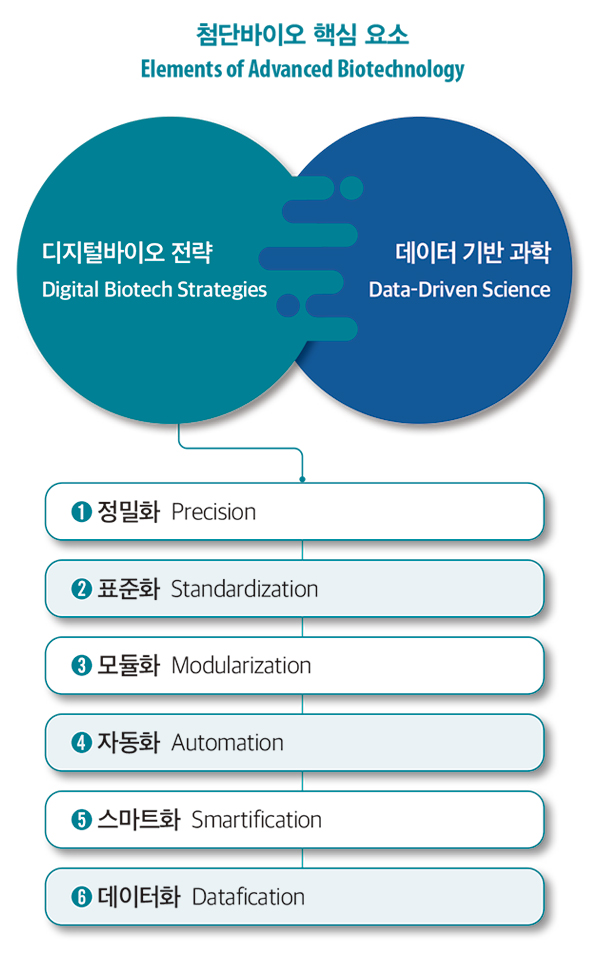
글로벌 시장 판도를 바꿀 3대 게임 체인저 중 하나로 꼽히는 첨단바이오는 포스트 코로나 시대를 맞으며 그 중요성이 더욱 커졌다
Advanced bio, hailed as one of the three major game-changers set to reshape the global market landscape, has grown even more significant in the post-COVID era.
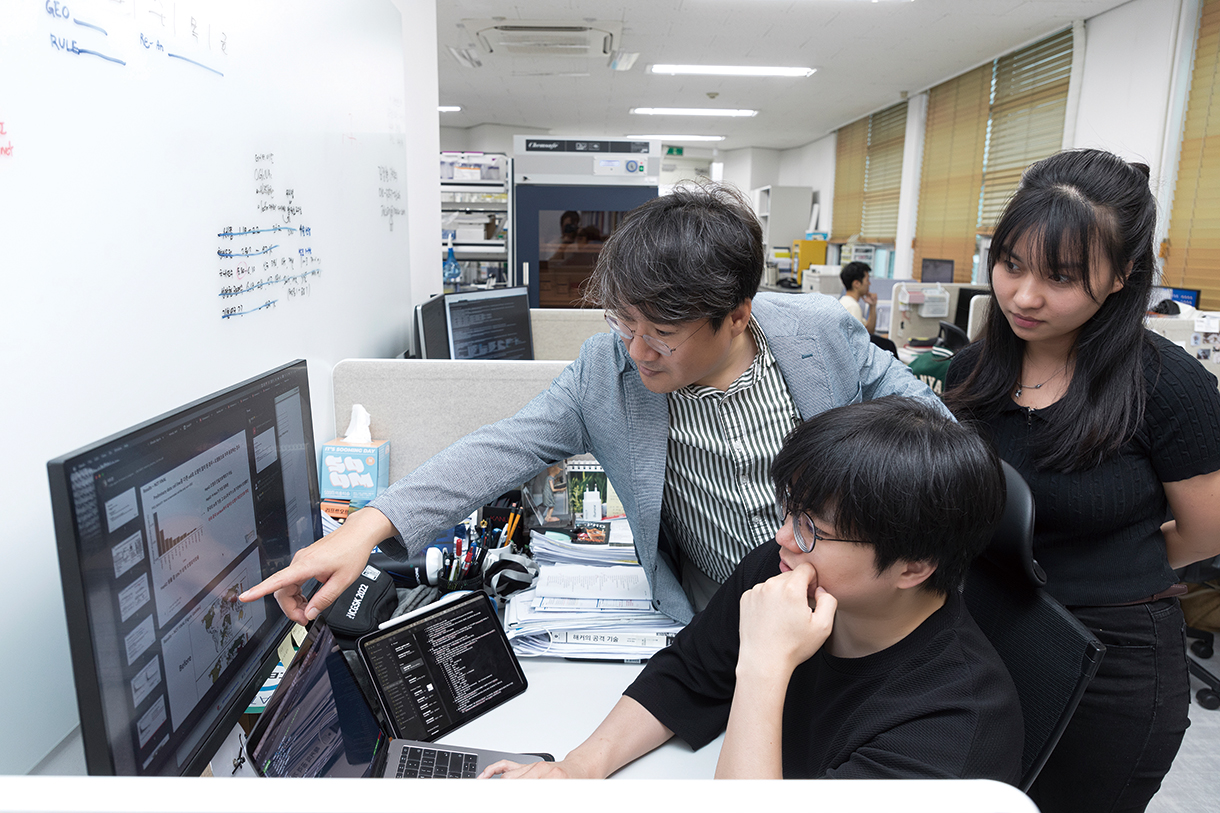
한양, 첨단바이오의 중심에 서다
정부의 첨단바이오 R&D 사업을 이끄는 남진우 교수. 그는 2021년 12월에 개소한 ‘한양생명과학기술원(Hanyang Institute of Bioscience and Biotechnology; HY-IBB)’ 설립에도 큰 역할을 담당했다. 설립위원장과 초대 부원장 등을 맡아 기관의 기틀을 만들었다. 한양생명과학기술원은 첨단바이오 연구 인프라와 연구생태계 구축을 위해 설립됐다. 학생회관 2층, 200여 평 규모 공간에 첨단바이오 연구에 필요한 최첨단 장비를 두루 갖췄다. 한양대 공대, 의대, 자연대 소속 우수 바이오 연구자 100여 명이 참여하고 있다. △차세대 생명과학융합 연구센터 △바이오빅데이터 연구센터 △미래의료기기/분자진단 연구센터 △바이오의약 혁신기술 연구센터 △바이오공동기기센터의 5개 센터 체계로 운영 중이다. 2023년 7월에는 첨단바이오 연구 대형사업 유치를 목적으로 한양생명과학기술원에 ‘첨단바이오 융합연구소’를 설치했는데, 남진우 교수가 초대 연구소장을 역임했다.
“한양생명과학기술원은 교내 기관으로서 학교에서 공간과 장비, 전임 인력을 지원받고 있습니다. 한양대가 첨단바이오 융합연구의 산실이 되는 데 큰 역할을 하리라 생각합니다.”
남진우 교수는 그동안 쌓아온 다양한 연구기획 행정 경험을 바탕으로 주어진 소임을 다하고, 정부와 민간, 대학, 연구, 병원, 산업계 인맥 및 네트워크를 바탕으로 한양대 및 국가의 첨단바이오 발전에 기여하고 싶다고 밝혔다. 그는 ‘첨단바이오 클러스터’도 꿈꾸고 있다. 한양대를 중심으로 서울 동북지역(성동구, 동대문구) 대학, 연구기관, 바이오산업체가 함께하는 클러스터를 구축해 지역 발전, 나아가 대한민국의 바이오 발전에 일조하겠다는 포부다.
“한양대는 플랫폼 바이오 연구, 디지털바이오 연구를 통해 국내뿐 아니라 글로벌 Top 수준으로 성장해 갈 것입니다. 생명과학뿐 아니라 AI, 알고리즘, 화학공학, 인문학, 법학, 의학 등 다양한 분야로 시야를 넓힌 한양인들이 첨단바이오 융복합 연구를 이끌어가길, 첨단바이오가 한양대의 또 다른 엔진이 되길 소망하고 있습니다.”
Hanyang, at the Center of Advanced Bio
Professor Nam, who leads the government's advanced biotechnology R&D initiatives, played a pivotal role in establishing the Hanyang Institute of Bioscience and Biotechnology (HY-IBB) in December 2021. As the founding chairman and first vice president, he laid the foundation for the institution. HY-IBB was created to build a cutting-edge research infrastructure and ecosystem for advanced biotechnology. Located on the second floor of the Student Union Building, the 660-square-meter space is outfitted with state-of-the-art equipment necessary for advanced biotech research. More than 100 top bio researchers from Hanyang University's College of Engineering, College of Medicine, and College of Natural Sciences are involved in the institute’s efforts. The institute is structured around five specialized centers: the Convergence Research Center for Next-Generation Life Sciences, Bio-Big Data Center, Research Center for Future Medical Device and Molecular Diagnosis, Research Center for Biopharmaceutical Innovation and Technology, and Bio-Resource Center. In July 2023, the Advanced Bio Convergence Research Institute was established within HY-IBB to attract large-scale biotechnology research projects, with Professor Nam appointed as its inaugural director.
“As an on-campus institute, the Hanyang Institute of Bioscience and Biotechnology benefits from the university's support in terms of space, equipment, and dedicated staff. I am confident it will be instrumental in positioning Hanyang University as a hub for advanced bio-convergence research.”
Professor Nam expressed his commitment to fulfilling his role by drawing on his extensive experience in research planning and administration. His goal is to contribute to the development of advanced biotechnology at Hanyang University and on a national level by leveraging his connections across government, the private sector, academia, research institutions, hospitals, and industries. He envisions creating an “Advanced Bio Cluster” centered around Hanyang University, involving universities, research institutions, and biotech companies in Seoul's northeastern region (Seongdong-gu and Dongdaemun-gu). Through this initiative, he aims to promote regional development while contributing to the growth of South Korea's biotechnology sector.
“Hanyang University is poised to grow into a global leader in platform bio research, digital bio research, not just domestically but on the world stage. I hope that Hanyang students, who have broadened their horizons across diverse fields including life sciences, artificial intelligence, algorithms, chemical engineering, humanities, law, and medicine, will spearhead cutting-edge interdisciplinary bio research. My vision is for advanced biotechnology to become a key driver of Hanyang University's future success.”
